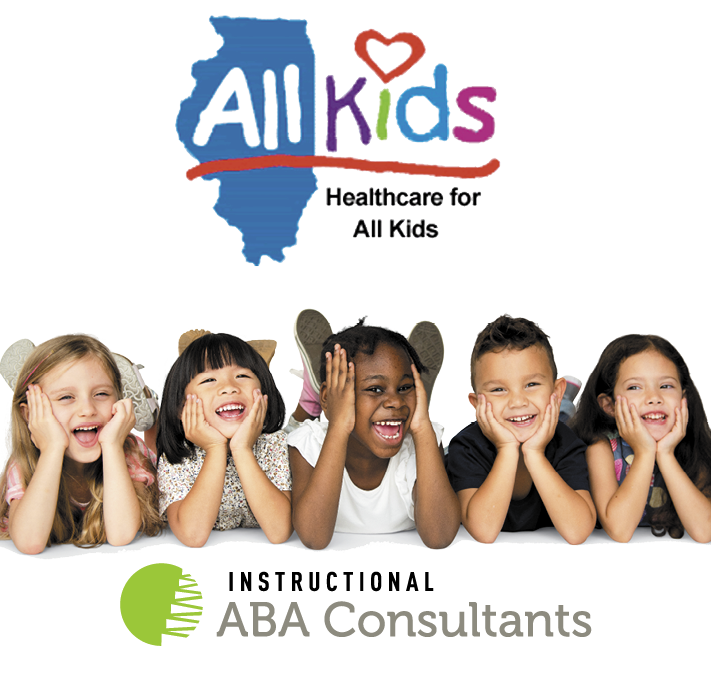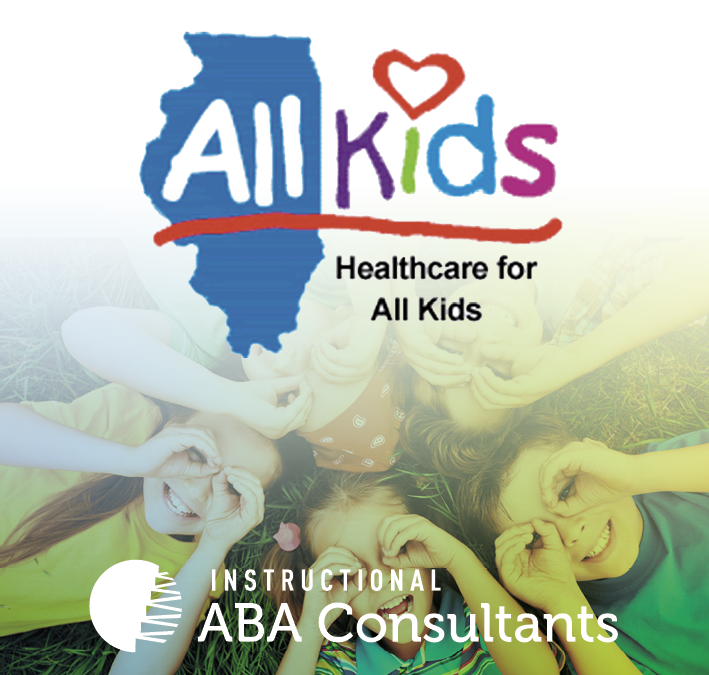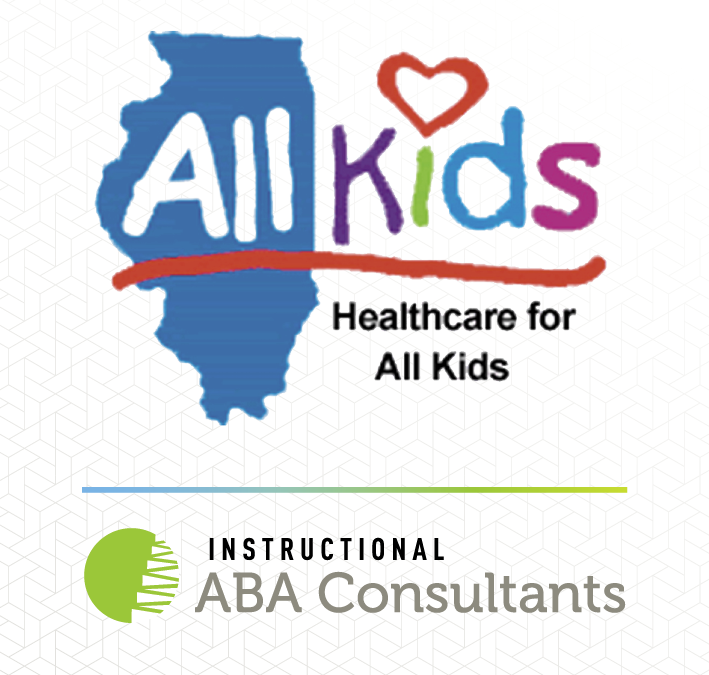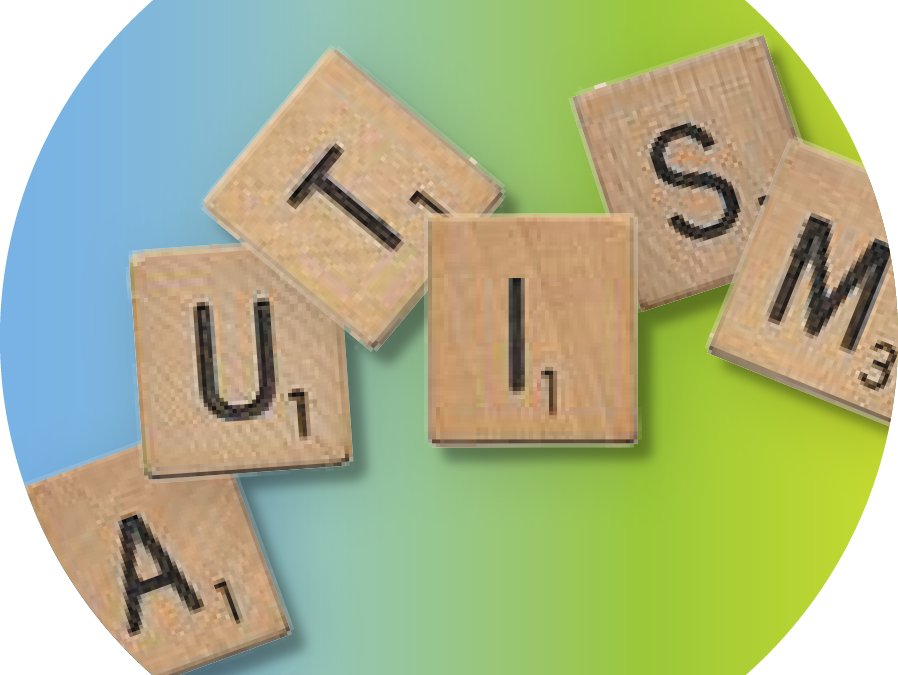
by IABA Team | Feb 26, 2022
A Licensed Practitioner of the Healing Arts (LPHA) in Illinois can be legally defined in several ways. The important definitions for the sake of this blog will be listed, as some definitions are not applicable to autism or ABA therapy services.
- A clinical psychologist who holds a valid license in the state of practice and is legally authorized under state law or rule to practice as a clinical psychologist, so long as that practice is not in conflict with the Clinical Psychologist Licensing Act
- A licensed clinical professional counselor possessing a master’s degree who holds a valid license in the state of practice and is legally authorized under state law or rule to practice as a licensed clinical professional counselor, so long as that practice is not in conflict with the Professional Counselor and Clinical Professional Counselor Licensing Act [225 ILCS 107]
- A clinical social worker possessing a master’s or doctoral degree who holds a valid license in the state of practice and is legally authorized under state law or rule to practice as a social worker, so long as that practice is not in conflict with the Clinical Social Work and Social Work Practice Act.
LPHAs & ABA Therapy
LPHAs are important when it comes to ABA therapy service providers and Medicaid. Many service providers are nationally licensed for Medicaid, with state licensure being an afterthought. If a provider is nationally certified by Medicaid but not certified at the state level, they need to be supervised by an LPHA.
Medicaid treatment plans using ABA therapy and services must be supervised by an LPHA for billing. An LPHA will supervise programs, time, & service professionals and how Medicaid should be billed.
LPHAs are not required to have contact with clients–they simply manage billing and other backend processes. If a billing conflict arises, LPHAs will contact service providers in order to figure out what is going on with a certain expense.
ABA Therapy from IABA Consultants
IABA consultants is now accepting All Kids Medicaid!
Medicaid Clinic Timeline:
- Oak Lawn: Current
- Naperville: May 2022
- Glenview: Summer 2022
- Managed Care Plans: Summer 2022
Dates are tentative and may be subject to change.
For details and coverage information, find the location closest to you and give us a call or send us an email.
If you have questions regarding autism treatment, education, or plans to use ABA therapy, we are here for you! Our goal is to make sure no family is turned away due to financial constraints. Our therapy team would love to talk to you. Find the location closest to you and give us a call. We’re here for you.

by IABA Team | Feb 19, 2022
Medicaid in Illinois has 2 types of plans that are commonly given to children–All Kids and Managed Care plans. The short version of what these 2 packages are can be summed up by saying All Kids is a complete health insurance plan while Managed Care is a recommended care plan where some things may not be covered.
Both of these plans have specific uses for those in need of healthcare. Applications need to be submitted and approved before any coverage is granted.
So, what are the differences between All Kids and Managed Care when it comes to benefits and uses? Let’s take a look.
Illinois Medicaid All Kids
All Kids is, quite simply, a complete health insurance package for a child in need.
Illinois’ All Kids program is for children who need comprehensive, affordable, health insurance, regardless of immigration status or health condition. All Kids covers:
- Doctor visits
- Hospital stays
- Prescription drugs
- Vision care & glasses
- Dental care
- Regular check-ups
- Immunization shots
- Medical therapy
- Speech therapy
- Physical therapy
- ABA services (As of October 2020)
To receive All Kids benefits, a family & child must meet several criteria. Check out the Illinois All Kids webpage for more information.
Click here to visit the State of Illinois application page.
Illinois Medicaid Managed Care
Managed care is a kind of health insurance program. When you enroll in managed care, you become a member of a Health Plan. You will have at least 5 Health Plans to choose from depending on where you live. The Health Plan you choose will offer you a full range of services while helping you coordinate your health care.
- Your health care needs
- Help manage your health care conditions
- Give you information you need to stay healthy
- Help you identify your health goals and create a care plan to achieve those goals
- Answer questions about your care
- Find a doctor or specialist
- Transition out of a hospital or facility
- Provide community resources
Unlike All Kids, managed care is not a comprehensive health plan. Managed care plans can help you find the care you need, but may not cover all the costs. Be sure to talk to a Medicaid representative if you have questions.
ABA Therapy from IABA Consultants
IABA consultants is now accepting All Kids Medicaid!
Medicaid Clinic Timeline:
- Oak Lawn: Current
- Naperville: May 2022
- Glenview: Summer 2022
- Managed Care Plans: Summer 2022
Dates are tentative and may be subject to change.
For details and coverage information, find the location closest to you and give us a call or send us an email.
If you have questions regarding autism treatment, education, or plans to use ABA therapy, we are here for you! Our goal is to make sure no family is turned away due to financial constraints. Our therapy team would love to talk to you. Find the location closest to you and give us a call. We’re here for you.

by IABA Team | Feb 12, 2022
ABA therapy only recently became available as a Medicaid-covered health option in October of 2021. ABA therapy and related services are needed more every year, but can be too expensive for many families. Medicaid coverage can alleviate the financial burden and allow families to get the care they need.
What ABA Services & Programs are Covered by Illinois Medicaid?
The state of Illinois only recently (2021 federal EPSDT mandate) recognized ABA therapy as a valid medical service for ASD and other behavioral issues. Illinois Medicaid can cover the following services:
- Behavioral health services
- Licensed clinical psychologists
- Licensed clinical social workers (LCSW)
- Board-certified behavioral analysts
- Registered behavior technicians
- Specialists in any of the above categories
Clinical psychologists and LCSWs can oversee and evaluate behavioral programs conducted by BCBAs or RBTs. Medicaid funding is required that a state-licensed Licensed Professional of the Healing Arts (like a clinical psychologist and LCSW) supervise BCBA treatment plans for individual plans to cover ABA services. The behavioral programs are created based on individual needs and get input from clients, families, and healthcare professionals. All behavior programs must be formally created using behavioral analyst assessments (like the ABLLS/VB-MAPP) and have measurable goals on their behavioral treatment plan as required by Medicaid.
Finding a Provider for Medicaid ABA Therapy
The biggest hurdle for anyone looking to secure Medicaid-covered ABA services is the lack of providers. ABA therapy is allowed to be covered through Medicaid, but ABA services providers don’t have to accept Medicaid.
The best way to find an ABA service provider that accepts Medicaid is to talk to your child’s doctor or psychologist and ask about clinics or services that accept Medicaid. LCSWs are also a great way to find a provider that accepts Medicaid (LCSW services may be covered under your Medicaid plan).
Medicaid Managed Care for ABA Therapy
Be sure to get information about both the Medicaid All Kids and Managed Care before applying. Managed Care programs are not actually handled by Medicaid–they are handled by contracted insurance providers (In Illinois the providers are Blue Cross Blue Shield IL and Meridian).
While All Kids is directly handled by Illinois Medicaid, Managed Care is handled by contracted outside insurance providers who report to the state. Managed Care programs may make different recommendations based on the insurance provider who manages a given plan. This may happen by recommending children to a specific in-network provider for a given service (in-network for BCBS Community or Meridian).
The coverage varies greatly from All Kids to Managed Care programs, so make sure the services your child needs are covered by any Managed Care program you are considering.
ABA Therapy from IABA Consultants
IABA consultants is now accepting All Kids Medicaid! For details and coverage information, find the location closest to you and give us a call or send us an email.
If you have questions regarding autism treatment, education, or plans to use ABA therapy, we are here for you! Our goal is to make sure no family is turned away due to financial constraints. Our therapy team would love to talk to you. Find the location closest to you and give us a call. We’re here for you.

by IABA Team | Feb 5, 2022
What is an LCSW?
A licensed clinical social worker (LCSW) is a state-certified social worker with at least a master’s degree in a social work program. Each LCSW must also pass a national examination. LCSWs have extensive professional training in their field (minimum of 2 years & 3,000 clinically-supervised hours after receiving a master’s) and specialize in mental health.
The mental health aspect of social work is what separates an LCSW from other social workers.
How do LCSWs Help with ABA Therapy?
LCSWs work with clients to secure services from the state they are certified in. This includes securing Medicaid coverage for ABA Therapy and related services. LCSWs work doesn’t stop at securing health coverage, however; they also oversee case & client management and evaluate progress.
LCSWs are able to make recommendations and keep an eye on if their recommendations are working as intended. LCSWs are able to do the following in tandem with ABA therapy and services:
- Case Planning & Management
- Implementing and overseeing ongoing cases
- Evaluations of case progress
- Recommendations based on evaluation results
- Social skills groups to support the social goals of ABA therapy
- Supporting the entire family unit with resources and community outreach
LCSWs talk to both the families of clients and the BCBAs (or other certified behavioral health professionals) to create a clear picture of a client’s needs.
LCSWs & Medicaid
Medicaid plans typically cover both social work and mental health services. An LCSW working with Medicaid is able to secure coverage for ABA therapy services. LCSWs are able to make great recommendations due to their mental health expertise, which includes:
- Mental health treatments & programs
- Clinical supervision of ABA treatment plans
- Family & social functions
- Interpersonal relationships
- Systems–both systems theory and first-hand experience
- Family intakes
- Family education (working with families to understand treatment programs)
- Outreach
ABA Therapy from IABA Consultants
IABA consultants is now accepting All Kids Medicaid!
Medicaid Clinic Timeline:
- Oak Lawn: Current
- Naperville: May 2022
- Glenview: Summer 2022
- Managed Care Plans: Summer 2022
Dates are tentative and may be subject to change.
For details and coverage information, find the location closest to you and give us a call or send us an email.
If you have questions regarding autism treatment, education, or plans to use ABA therapy, we are here for you! Our goal is to make sure no family is turned away due to financial constraints. Our therapy team would love to talk to you. Find the location closest to you and give us a call. We’re here for you.

by IABA Team | Jan 25, 2022
Note: This short article was primarily put together for reference. The actual process for diagnosing ASD is much more complex than just the steps and areas of note published in the DSM-5. Only medically-licensed professionals are able to properly diagnose ASD and any co-occurring conditions. This article is meant for reference use only and is not intended to provide medical advice.
Getting a proper autism (ASD) assessment or diagnosis may seem complicated, but in reality, only a few specialists need to be contacted in order to set up an evaluation. Autism diagnoses can only be given by a select group of medically-licensed professionals. The professions that can give an autism diagnosis include:
- Developmental Pediatricians
- Pediatric Neurologists
- Child Psychiatrists
- Child Psychologists
The American Psychiatric Association Diagnostic and Statistical Manual of Mental Disorders (DSM-5) includes guidelines professionals use to look for signs of ASD.
What is Observed for an Autism Diagnosis
The DSM-5 specifies five areas that need to be evaluated for an ASD diagnosis.
Persistent Deficits in Social Communication and Social Interaction Across Multiple Contexts
The first area observed by doctors looking at a potential ASD diagnosis focuses on social issues. Please note that this is a list for reference–only medically licensed professionals can make a proper diagnosis for ASD. There are a few specific things that need to be carefully observed:
- Deficits in social-emotional reciprocity.
- Abnormal social approaches
- Failure to have a reciprocal conversation
- Lack of sharing interests
- Lack of emotions
- Failure to respond to social queues and interactions
- Deficits in nonverbal communicative behaviors.
- Poor communication (nonverbal and nonverbal in tandem with verbal)
- Lack of eye contact
- Abnormal body language
- Lack of facial expressions
- Unable to interpret gestures
- Deficits in developing, maintaining, and understanding relationships.
- Difficulty adjusting to varying social situations
- Difficulty with play or making friends
- Lack of interest in peers
Restricted, Repetitive Patterns of Behavior, Interests, or Activities
Doctors look for specific patterns or combinations of behaviors, interests, and activities to help guide an autism evaluation.
- Repetitive motor skills, movements, speech, or use of objects.
- Repeated gestures or motions
- Specific, repetitive organization
- Repeated idiosyncrasies
- Insistence on sameness.
- Inflexible to routine changes
- Ritualized patterns
- Rigid thinking or action patterns
- Highly restricted or fixated interests.
- Strong attachments or preoccupations with unusual objects
- Excessive use or focus on a specific object
- Hyperactivity to sensory input.
- Indifference to pain or extreme temperatures
- Adverse reactions to specific sensory stimuli
- Excessive fascination with sensory stimuli
ASD Symptoms Over Time
ASD symptoms must be present in early development but may not manifest fully until social demands exceed limited capacities or are masked by learned strategies later in life. The DSM-5 notes that some symptoms of ASD can only become apparent later in life, as an individual is forced to interact with more of the world. These symptoms alone may not be enough for an ASD diagnosis if no symptoms were present in an individual as a child.
Significant Social Impairments
Records of ASD symptoms causing clinically significant impairment in social, occupational, or other areas of functioning. Medical professionals performing ASD diagnoses will look at social interactions and any impairments. Accepted social queues, communication, and other social stimuli will be used to evaluate.
No Evidence of Intellectual Disability
ASD evaluations must have evidence to rule out other diagnoses of intellectual disabilities. Although ASD frequently occurs alongside other intellectual disabilities, the diagnoses must be made separately. Social factors such as communication are commonly used to differentiate ASD from intellectual disabilities but are not always the case.
Use of Autism Diagnosis Criteria Reference
This short article was primarily put together for reference. The actual process for diagnosing ASD is much more complex than just the steps and areas of note published in the DSM-5. Only medically-licensed professionals are able to properly diagnose ASD and any co-occurring conditions.
The guidelines in the DSM-5 are also useful as a quick reference for things to notice in a young child’s development. Again, only medically-licensed professionals can diagnose ASD, but parents must take note of any developmental abnormalities as a child ages.
ABA Therapy from IABA Consultants
If you have questions regarding autism treatment, education, or plans using ABA therapy, we are here for you! Our goal is to make sure no family is turned away due to financial constraints. Our therapy team would love to talk to you. Find the location closest to you and give us a call. We’re here for you.





